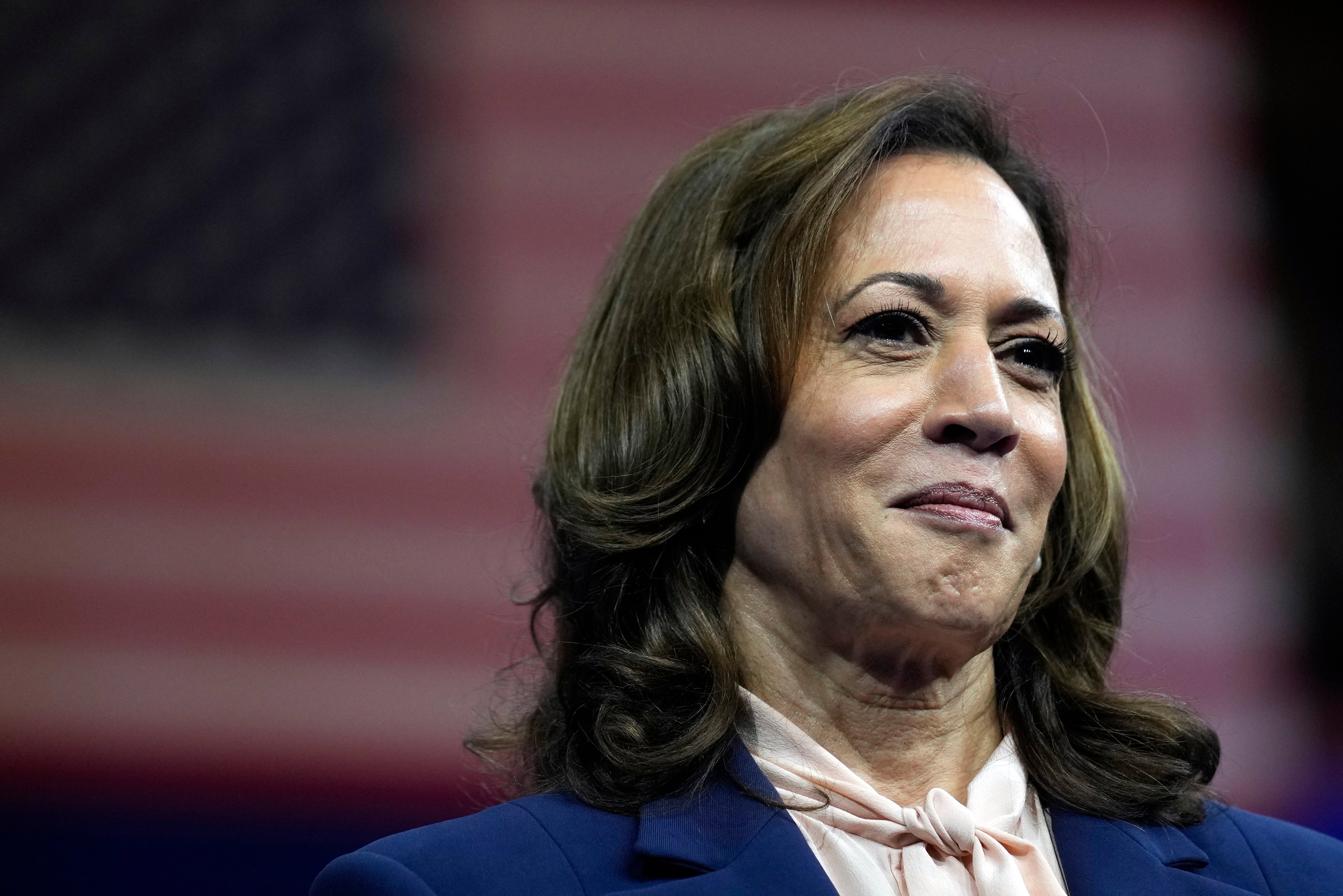It’s an uncomfortable truth, but Trump has the edge on Kamala in one key area
This week Kamala Harris overtook Donald Trump in some swing states, but it’s vibes not substance that is keeping her ahead, writes Jon Sopel. If she’s not careful, it could cost her the election


I’m not sure what music Kamala Harris has on in her armoured SUV when she’s travelling, but it wouldn’t surprise me if the California native was listening to The Beach Boys’ “Good Vibrations”. This is turning into the “vibes” election: smile a lot, laugh plenty, sound positive, be upbeat – and contrast yourself as much as possible with the dark, dystopian Donald.
And to borrow from another major theme of The Beach Boys oeuvre, she seems intent on riding that wave for as long as possible. But with the Democratic Party about to meet in Chicago next week for its convention, the mood music will surely have to give way to substance. It’s time for Team Harris to start talking seriously about policy.
Say it quietly, but there has been far more policy detail from Donald Trump than her. Until now, the one bit of policy she has announced was, in fact, an unashamed smash and grab raid on one of Trump’s ideas – to ban the taxing of tips on hospitality staff. In the US, where waiting staff are paid a paltry amount, what you leave for service is a vital part of what these people earn – so if you leave less than 20 per cent as a tip you’re likely to be chased down the street.
But wider economic policy from the lovable and cheery Harris/Walz duo? It’s still a bit of a blank sheet. As she begins to set out her stall some specifics around the economy are starting to drip through; federal measures to tackle price gouging by big corporations as a way of protecting consumers – particularly in the areas of food and pharmaceuticals, stopping mergers and acquisitions that harm consumers, and a new policy on tariffs are among the ideas being discussed.
The first reason for saying so little until now is obvious and fair enough: Harris is new to the race. It’s less than a month since Joe Biden announced he was out; it was only two weeks ago that the Democratic Party started the process of formal nomination; 11 days since she made Tim Walz her running mate. Things have been moving at warp speed. How much time has there been for considered policymaking?
Adjacent to that is how much daylight she puts between herself and Biden – his record on the kitchen table issues, like the cost of living, is hardly ideal. One aide to Harris has been quoted as saying what she will offer is “same values, different vision”. And the presidential candidate has already shown signs of wanting to differentiate herself from him on Israel and Gaza, complaining openly that there have been far too many civilian deaths among the Palestinian population.
The other thing is that if just doing “vibes” is serving you so well, why change until you must? US media organisations are growing increasingly restive and uneasy that she hasn’t given a proper news conference, or sat down for any in-depth interviews since becoming the Democratic nominee. They might have to wait a bit longer.
But again, if you’re her campaign team, why do something risky when it all appears to be going so well? A set of NYT/Siena polls for those critical Midwest swing states – the crucible of this election – Wisconsin, Michigan and Pennsylvania, suggest that with Harris now at the top of the ticket, she has a four-point lead in each over Trump.
Before Biden pulled out, the polls had him lagging behind Trump. And another influential (and non-partisan) organisation, the Cook Political Report, has moved the so-called Sun Belt states of Arizona, Nevada and Georgia from “leaning Trump” to “toss up”.
Democrats are even daring to dream that states like Florida and Ohio could come back into play. It’s all been a ghastly nightmare for Trump, and that coupled with suggestions that Harris has been drawing bigger crowds than he does has nearly tipped him over the edge.
US general elections are very different from those in Britain – there is no party manifesto, but at the conventions both parties have their “platform”. This may not have the detail of a conventional UK-style manifesto, but it does have to set out economic priorities – what they’re going to do about healthcare costs, immigration and all the other issues that will decide the outcome in November.
And next week in Chicago, amidst the red, white and blue balloons and streamers, hoopla and hotdogs, we should get more detail of what a Harris administration would do if given the keys to the White House.
After flailing around initially by the upheaval brought by Harris’s arrival in the race, Trump seems to have refocused and is back on message talking about cost of living issues and illegal immigration. He gave a news conference on Thursday at his exclusive Bedminster golf club to talk about the struggle to make ends meet. OK, that gets full marks for irony as a venue to hold a presser about the downtrodden blue-collar worker and the cost of living, but he’s on the money that this is the topic. And what he did with a packet of Tic Tacs at a rally this week was clever and instantly memeable.
There was good news for US consumers this week when inflation fell below 3 per cent for the first time since Biden took over the presidency. That is good news for Harris. Less encouraging is that the price of essentials are still way higher than they were before the pandemic. And that is good news for Trump.
There has never been an election cycle like this one. Not even close: the disastrous Biden/Trump debate, the assassination attempt, Biden’s withdrawal, Kamalamania’s arrival, feelgood vibes and the whole “brat” thing. We’ve never seen anything like it.
But what will decide this election? Thank God for tradition: it’s still the economy, stupid.
Jon Sopel is the former BBC North America editor and now presents Global’s ‘The News Agents’ podcast






Join our commenting forum
Join thought-provoking conversations, follow other Independent readers and see their replies
Comments